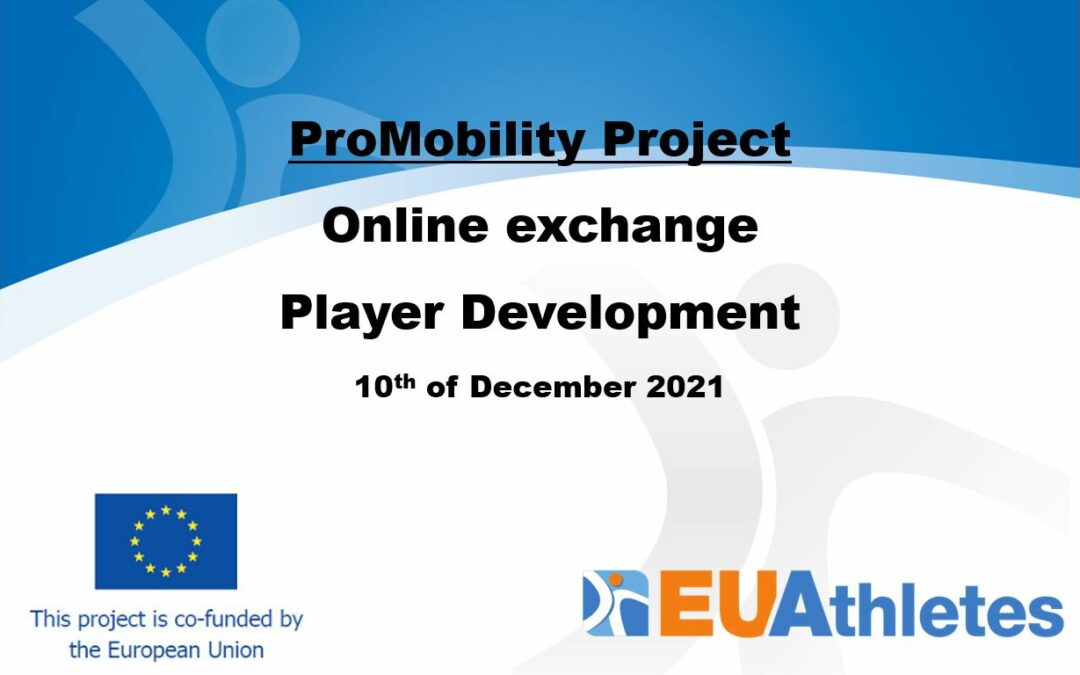
Dec 10, 2021
The PROMobility project, financed by the EU under the ‘Exchanges and Mobility in Sport’ Preparatory Action, aims to develop cooperation in sport through job shadowing for the staff and volunteers at player associations in Europe and South Africa. Its goal is to improve the skills and knowledge base of key personnel at player associations thereby enabling them to better support their athletes.
The project’s workplan has been modified because of the impact of the ongoing Covid-19 pandemic. It was decided to start with the Online Exchanges on defined topics, which allow the participants to network and deepen their knowledge, and to continue with the physical job shadowing visits in 2022.
Four Online Exchanges have already taken place: Player recruitment and engagement and Response to the Covid-19 pandemic in June; Communications and media on 26th of November and the Online Exchange on Player Development has taken place today.
Player development is a key priority for player associations and this meeting has generated an important interest. Around 20 participants form different player associations have participated in the event. After presentations from AJFS, GPA and My Players, the participants engaged in discussions on the topic. The meeting allowed them to share experiences, learn from each other and develop good practice.
The Online Exchange on Commercial development and marketing will take place in the New Year, it will hopefully be followed to physical mobility of the participants.
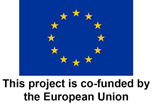
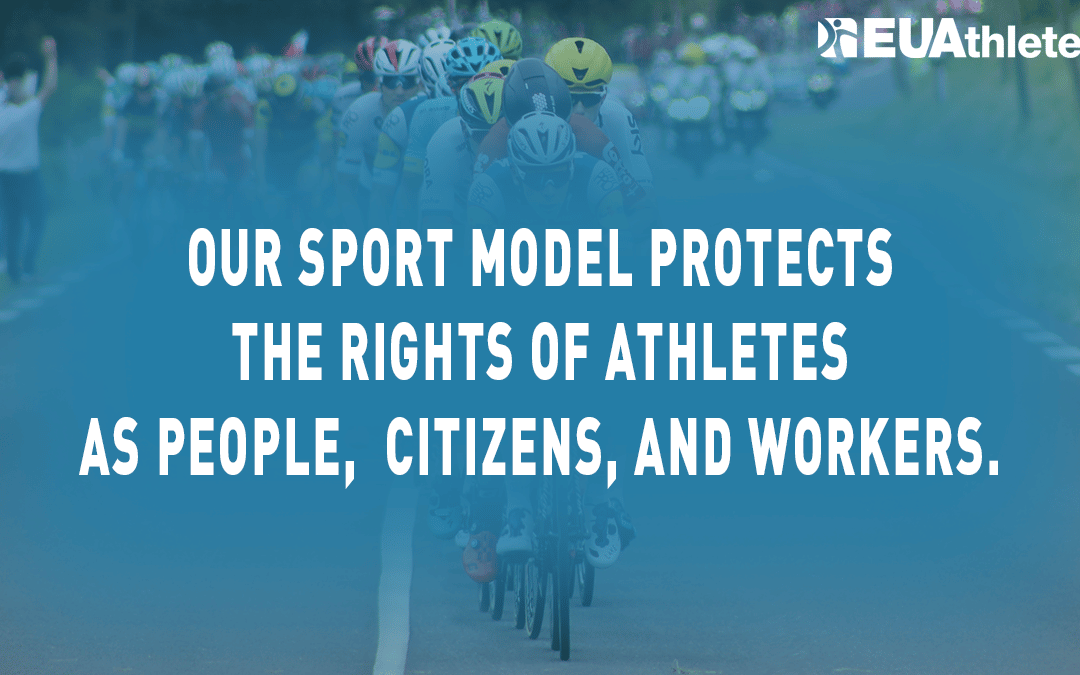
Dec 3, 2021
Following the recent Resolution of the Council on the key features of a European Sport Model, EU Athletes takes note of an expressed need to ‘further explore and continue on-going discussions with all sport stakeholders on the key features of a European Sport Model by acknowledging the diversity of approaches and new developments across different types of sport…’.
We support this approach as we believe that emerging challenges related to the governance of sport should be addressed through dialogue, negotiations and multi-stakeholder initiatives. Therefore, EU Athletes remains committed to cooperating with the governments, European organisations and institutions, as well as the sport organisations, and making sure that the voice of the European athletes is properly taken into account in these discussions.
As previously stated in EU Athletes’ position, any model of sport that can be accepted in Europe must comply with the principles of good governance, rule of law and democracy, while respecting and promoting the human rights of athletes and other people involved. Furthermore, there cannot be any support for a model that disregards the views, rights and interests of professional and elite athletes as people and workers.
We reiterate that the freedom of association, defined as one of the key features of a European Sport Model, is a fundamental right of athletes. Athletes have a right to form or join an athlete association to defend and advance their interests, to be represented in the decision making by the people of their own choosing and to collectively negotiate the terms upon which they are involved in sport. It is essential to ensure that these rights of athletes are respected, protected and promoted by the Member States, the European Union and the sport organisations.
In any case, the concept of a ‘European Sport Model’ cannot be used as an excuse for sport organisations to claim special treatment’ or exemption from the application of national and European law, including EU competition law. Ensuring that the sport sector is sustainable and fit for future challenges requires setting clear limits to the autonomy and specificity of sport.
EU Athletes recognizes and supports a crucial role that the European governments and the European Union have to play in ensuring that sport is well governed, complies with the law and respects the fundamental rights of athletes and other stakeholders. We believe that these considerations need to be at the centre of the future inclusive and multi-stakeholder discussions on a European Sport Model.
For any further information, contact Paulina Tomczyk, EU Athletes General Secretary paulinatomczyk@euathletes.org
Statement

Dec 2, 2021
EU Athletes is looking for an intern to support the team in the policy and project-related work. The internship will focus on contributing to preparing, managing and implementing EU-funded projects, as well as policy work in different areas, according to the profile and preferences of the successful candidate. The internship will also include various communication and administrative tasks.
The position will provide an excellent opportunity to learn and gain work experience in the professional sport sector, working for independent organisation representing European athletes from different sports.
Timing and conditions:
4–5 month internship with a stipend, (may be eligible for Erasmus+ Traineeship) starting in January/February 2022. Remote work, with possible travel within Europe.
Main tasks:
- Supporting the organisation in writing EU project applications;
- Supporting management, implementation and reporting of EU-funded projects;
- Monitoring of EU Sport Policy and other relevant policy fields;
- Contributing to reports, background documents and statements;
- Attending meetings, conferences and other relevant events;
- Assisting with organisation of EU Athletes events (in particular Board meetings and General Assemblies), meetings and seminars;
- Communication with members, partners and other stakeholders, updating the organisation’s website and social media channels.
Profile:
- Student currently enrolled in the last year of a Master’s degree programme (European studies, EU project management, Law, International relations or similar) or a recent graduate;
- Knowledge of the of the main EU Institutions and their functions, knowledge of EU legal and policy framework, particularly EU Sport Policy;
- Knowledge of EU programmes (particularly Erasmus+) and methodology of projects management;
- Excellent information gathering, writing, summarizing and reporting skills;
- Good working knowledge of Office package;
- Strong presentation, communication and people skills;
- Excellent English language skills (C1); knowledge of other European languages is an advantage;
- Ability to work in a small team and within a multicultural environment, strong organizational skills; autonomy, and flexibility;
- Previous experience related to NGOs in the sport sector, EU institutions or trade unions movement, as well as interest in professional sports and athlete rights would be appreciated.
Interested candidates are asked to send their application (CV and a short cover letter) before the 16th of December 2021. Only shortlisted candidates will be contacted for interviews.
Contact: Paulina Tomczyk, General Secretary paulinatomczyk@euathletes.or
Internship offer 2022
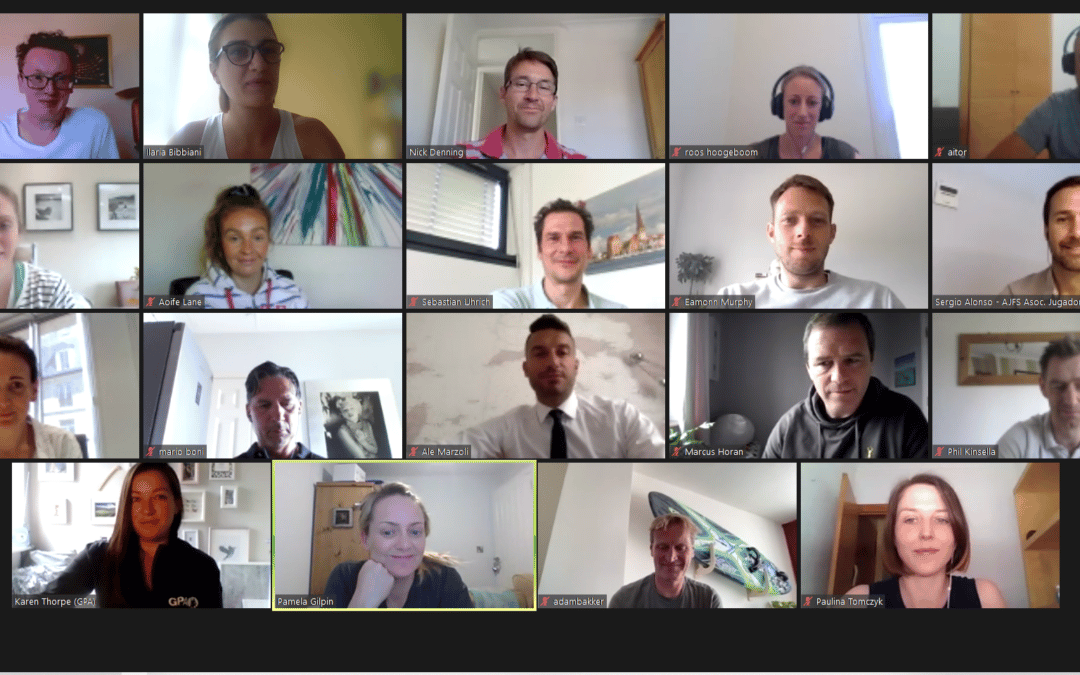
Jun 21, 2021
PROLead is a collaborative partnership Erasmus+ project coordinated by EU Athletes. Partnership include German Sport University Cologne and 8 player associations from different countries and sports. Focusing on the topic of dual careers of athletes, the project aims to enhance leadership skills of athletes, as well as volunteers and staff of player associations, by designing and implementing leadership courses at the European and national level.
The project started in 2020 with research and consultation phase, concluded with the report the delivery of a Report following the desktop research and literature review of leadership education for athletes. This research, as well as the player associations expertise, contributed to the preparation of the European Leadership Course. The successful example of the Jim Madden Leadership Programme implemented by the Gaelic Players Association, who is one of the project partners, also served as an important source of inspiration to the project team.
Second phase of the project focused on the European Leadership Course for player associations staff and volunteers and have been delivered via online sessions due to the ongoing Covid-19 pandemic. 32 participants from 20 player associations and 10 European countries actively participated in 12 modules delivered between January and June 2021.
Thanks to highly competent facilitators, the modules offered a broader understanding of topics related to personal development and leadership: personal skills and self-awareness, leadership behaviour and styles, trust and engagement, communication skills, inter and intrapersonal skills, organisational culture, leadership in action, flexibility and adaptability, crisis and change management. Additionally, the Course included panel discussions with distinguished leaders from and outside sport.
The goal of the Course was for the participants to develop their own leadership skills but also to prepare them in order to be able to organize national leadership courses for their member athletes. To help with that, the final modules focused on the design and delivery of leadership courses. The final module held on the 14th of June allowed the participants to reflect on their journey so far, to exchange between themselves and receive valuable feedback from the project staff.
The project is now entering a new phase: design and delivery of 7 national leadership courses for athletes in 6 different countries. Building up on the project’s results so far, these courses will be based on the European Leadership Course. Each project partner, with the support of staff, will work in order to adapt the course to their sport and country.
You can consult PROLead Intellectual Output 2 – European Leadership Course here.
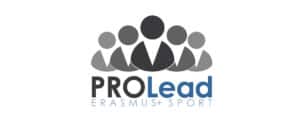

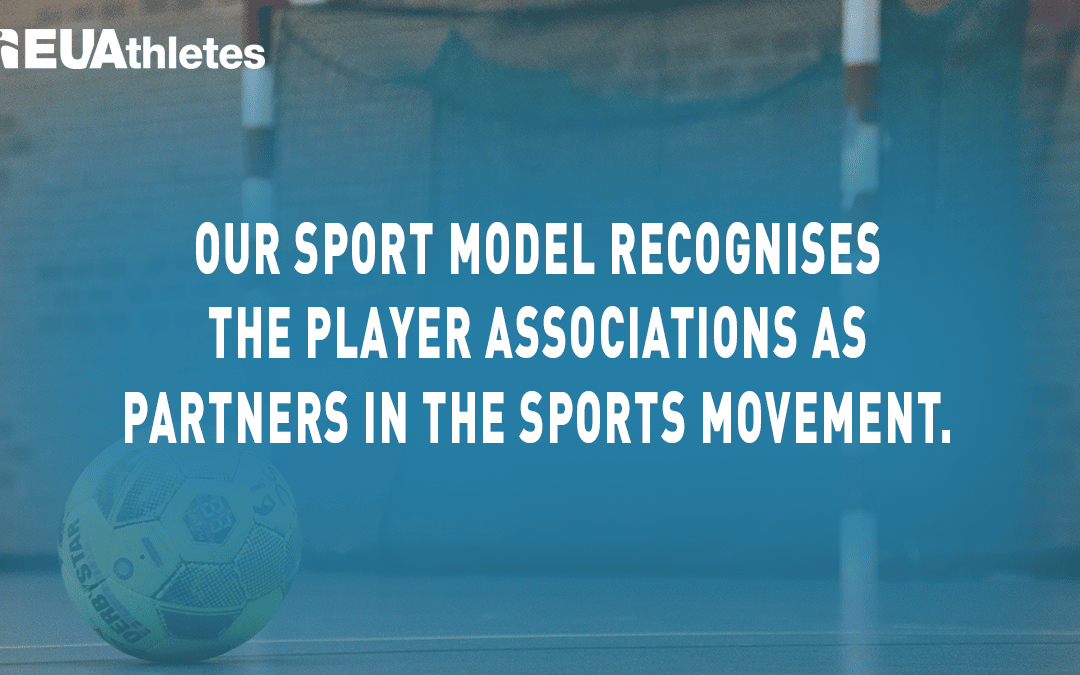
Jun 14, 2021
EU Athletes reiterates that athletes have the same fundamental rights as every other person, citizen and worker. These rights are guaranteed by national and European laws, as well as internationally recognised human rights instruments and standards. They cannot be restricted or redefined by sport organisations.
We believe there is no one static European model of sport. Sport within Europe is based on a mixture of dynamic and evolving models that vary according to specific sports and countries. Sport needs to continue to adapt to modern circumstances if it is to retain its value to society and remain attractive as a spectator sport and economic activity.
EU Athletes is strongly opposed to any attempts to recognise, codify or ‘protect’ the European sport model or its elements as proposed by the Olympic movement. Consequently, we do not support any reference to a European sport model in the European Sports Charter. In our opinion, it is little more than a continuation of the long running and unsuccessful campaign for sport to be exempt from European laws.
European governments and organisations such as the Council of Europe have a crucial role to play in ensuring that sport is well governed, complies with the law and respects the fundamental rights of athletes and other stakeholders. Adopting the ‘European sport model’ presented by the Olympic movement risks undermining the valuable work and achievement at the European level in the recent years.
Any model of sport that can be accepted in Europe must comply with the principles of good governance, rule of law and democracy, while respecting and promoting the human rights of athletes and other people involved. Furthermore, there cannot be any support for a model that disregards the views, rights and interests of professional and elite athletes.
Emerging challenges related to the governance of sport should be addressed through dialogue, negotiations and multi-stakeholder initiatives. EU Athletes remains committed to cooperating on this issue with the governments, European organisations and institutions, as well as the sport organisations.
Is the Lobbying for a ‘European Sport Model’ Just Another Route for an Exemption?
The IOC and International Federations have long argued for a sport exemption from European law and fair competition, in order to retain their dominant position and control over sport. We believe that the calls for the recognition and protection of the ‘European sport model’ are just the latest name for this campaign.
One characteristic of many sports in Europe is its reliance upon competition with a system of promotion and relegation which theoretically enables all sports clubs and individuals to compete at the highest levels. Yet paradoxically, the lobby for recognition of the ‘European model of sport’ is keen to remove fair competition in the market by restricting third party event organisers and threatening to sanction the athletes.
The notion of a ‘European sport model’ has been created not to protect sport, but to protect the position and the power of the Olympic movement and sports federations. It is not acceptable to recognise and support a model that only serves some of the stakeholders, while denying the reality of the modern sport sector and hindering its further development.
Player and Athlete Associations Are a Key Part of the Sport Movement
We would like to stress that player and athlete associations were never consulted on the proposed ‘European sport model’. The main features and characteristic of this model were unilaterally defined by the Olympic movement, without taking into consideration the views and interests of player associations and other important stakeholders. The Olympic lobby for a ‘European sport model’ never mentions player unions, athlete associations or social dialogue.
Just as there is no sport without athletes, there is no sport movement without athlete associations. Any sport model that is adopted without the participation and agreement of athletes and their associations lacks legitimacy.
Any European model of sport must recognise the long-established sports trade union movement. This is an important part of the European model for business, and a fundamental right that applies to sport. Athletes have the right to organise, collectively bargain and to be included in decision making process on matters that affect them.
European Case Law and Good Governance
The Olympic proposal of a European sport model seems to be based on the official recognition and support for the ‘pyramid model’ and the position of sport federations. It is important to keep in mind that sports federations are typically both the monopolistic regulators of their sports as well as the dominant commercial organiser of events, which creates a clear potential conflict of interest.
Monopolistic sport federations have a history of exploiting their dominant positions – often at the expense of athletes. These abuses have been found by the European courts in high-profile court cases from Jean Marc Bosman in 1995 to the most recent 2020 decision in favour of Mark Tuitert and Niels Kerstholt against the ISU. The courts have been clear that federations must not abuse their dominant position by restricting access to other commercial event organisers, not negotiating with player unions and restricting the rights of athletes.
Whilst it is possible for monopolistic sports federations and leagues to operate effectively and efficiently, we are strongly of the opinion that this requires effective oversight by the law and cannot be curtailed by the notion of autonomy or specificity of sport. The European and national courts have shown themselves to be capable of taking into account the specific nature of sport activity whilst holding the sport governing bodies to account so that they do not abuse their dominant position.
Good governance in European sport also requires effective oversight by law and public authorities to prevent issues such as bribery, corruption, athlete exploitation and abuse. Through crises and scandals in the recent years, it has been clear that self-regulation, lack of oversight and undue autonomy of sport organisations can create an environment susceptible to those problems.
The system that led to abuse of sport organisations’ position, in detriment of athletes and the sport itself, does not deserve protection from the European governments or organisations. Recognition of the proposed European sport model, despite the European case law and the good governance principles, would undermine the rule of law and other fundamental European values.
Balancing the Importance of the National Team vs Other Competitions
While for many sports and athletes the opportunity to play for their national teams is the pinnacle of their careers, it is not the case for all. Those athletes who, for whatever reasons, do not wish to participate in national team competitions should not be pressured or obliged to do so. It would clearly be unacceptable and contrary to European values to force citizens to work for their sports federations by playing for the national team. On the other hand, athletes wishing to participate in the national team competition should be free to do so, in a way that respects their rights as workers as well as their occupational health and safety, particularly by assuring adequate time to rest and recover. What is more, athletes should not be threatened with bans and losing a chance to represent their country in national teams’ competitions for simply taking part in third party events.
Currently, rules in many sports require athletes to be available for national teams at the expense of other competitions. On the other hand, a number of professional sports clubs are often reluctant to release their employees to work for national teams. This tension is made worse by the continual increase in sporting competitions by both sports federations and clubs, which can increase athletes’ workloads beyond what is healthy, acceptable or prescribed by laws regulating working time.
This is an important issue that should be addressed in dialogue between players, clubs, leagues and federations with an agreed competition calendar and conditions of players’ participation in the national team competitions. Contrary to the Olympic lobby’s attempts, it cannot be resolved by simply referring to their European model of sport and claiming that national sport competitions should always be given priority.
Financial Solidarity
Professional and elite sport is an important economic sector, with many organisations within the Olympic movement engaging in significant commercial activity. Regardless of their non-for-profit status, those organisations operate as businesses and must comply with applicable law and standards on business and human rights.
Given the dominant market position of sports federations compared to individual athletes, it is essential that the rights of athletes as citizens and workers continue to be protected. The economic value of sport is derived from the work and image rights of the athletes. They deserve fair remuneration, a share in revenues that they have helped create and an opportunity to commercialise their image rights.
Currently, many athletes are underpaid or in some cases, not paid at all, even though sport organisations generate significant revenues. ‘Financial solidarity’, mentioned as one of the fundamental characteristics of IOC’s European sports model, can easily be misused as an excuse to justify not paying athletes and restricting their commercial rights, as in the case of the widely contested Rule 40 of the Olympic Charter.
Solidarity between sport stakeholders and adequate funding of sport at all levels, accompanied by financial transparency and accountability are crucial. Most importantly, financial solidarity needs to ensure a fair return to athletes, on whose work the sport organisations generate their income.
Any model of sport in Europe must respect athletes’ fundamental right to organise into independent player associations and engage in social dialogue, including on issues such as remuneration, revenue sharing and commercial rights. Attempts of the Olympic movement to restrict these fundamental rights, under the cover of their European model of sport, must not be validated by any government or organisation committed to upholding fundamental human rights.
Contact:
Paulina Tomczyk, EU Athletes General Secretary
paulinatomczyk@euathletes.org
EU Athletes Response to the Lobby for a ‘European sport model’








